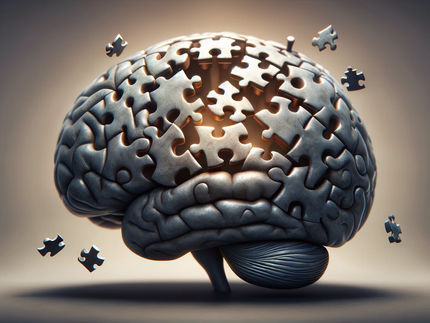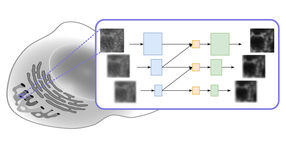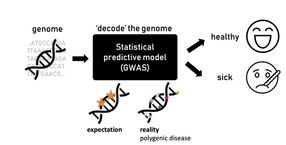Lipids in the brain an important factor for Alzheimer's disease?
Flemish scientists crack the code
As the most common form of dementia in the Western world, Alzheimer's disease carries enormous implications for our ageing society. It is generally accepted that the disease is caused by Alzheimer peptide (A -peptide) protofibrils. Until now, the conditions under which this type of protofibril is formed and leads to the disease remained unknown. VIB researchers have now discovered that certain lipids, present also in our brains, promote the formation of this protofibril. This discovery is of major importance because it opens up new avenues of research into finding medicines against Alzheimer's disease. It also explains earlier indications of a link between lipids and Alzheimer's disease.
The biological functioning of cells depends on the right folding of thousands of proteins. Normally, cells automatically correct misfolded proteins. In diseases such as Alzheimer's, Parkinson's and Creutzfeld-Jacob's, however, misfolded proteins are deposited in the body's tissues. In Alzheimer's disease misfolding of the A -amyloid peptide leads in various stages to the formation of plaques. These plaques consist of accumulations of so-called fibrils and is not in itself toxic. One of the intermediary stages in the formation of plaques is the formation of the protofibril form of the A -peptide. Protofibrils are toxic for brain cells, causing the poisoned cells to die off and leading to memory loss. This is why these protofibrils are considered to be the main cause of the symptoms of Alzheimer's disease.
VIB researchers were able, using certain lipids, to convert the fibrils into protofibrils. This came as a surprise, for it had long been assumed that the fibrils - and the plaque they cause - are stable and that once they have formed they cannot disappear or be transformed into another structure. Ivo Martins, Joost Schymkowitz and Frederic Rousseau (VIB, Vrije Universiteit Brussel), and Inna Kupperstein and Bart De Strooper (VIB, K.U.Leuven) have shown that certain lipids normally occurring in the brain can destabilize the fibrils, and therefore also the plaque that is so typical of Alzheimer's disease. The liberated protofibrils are toxic for brain cells, causing them to die off - at least in vitro. The researchers were able to show that this also happens in vivo by injecting laboratory animals (mice) with the protofibrils. This caused memory loss in the mice. The researchers explain that these symptoms are comparable with those of early stage dementia in humans.
The discovery opens up a new avenue of research into possible medicines against Alzheimer's disease. It indicates that substances that neutralize the toxicity or the formation of protofibrils might be able to be used as medicines against Alzheimer's disease. With the discovery of a method for producing toxic protofibrils, the researchers at the VIB have provided a good model for finding medicines that could counteract the formation of protofibrils.
Their research also indicates that the concentration of lipids in the brain greatly influences the biological equilibrium between non-toxic plaques and toxic oligomeres. These results open up new avenues of research into the effects of fat metabolism for diseases such as Alzheimer's.
Original publication: Martins et al., "Lipids revert inert A amyloid fibrils to neurotoxic protofibrils that affect learning in mice."; The EMBO Journal 2007.
Most read news
Other news from the department science

Get the life science industry in your inbox
From now on, don't miss a thing: Our newsletter for biotechnology, pharma and life sciences brings you up to date every Tuesday and Thursday. The latest industry news, product highlights and innovations - compact and easy to understand in your inbox. Researched by us so you don't have to.






















































